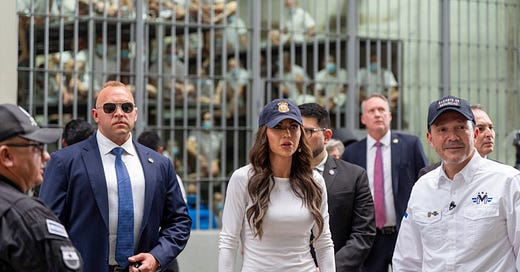

When it’s his liberty on the line, Steve Bannon evidently doesn’t subscribe to the venerated axiom “Never complain, never explain.” Last Friday, Bannon’s lawyers, on his behalf and with his agreement, filed a motion complaining about federal prosecutors going after the “telephone records and email records from the personal and professional accounts of [Bannon’s] defense counsel, Robert J. Costello.”
The Department of Justice sought the documents as part of its November 12 criminal contempt indictment against Bannon for refusing to appear before the House Jan. 6th Committee or to provide documents in response to its subpoenas.
Time for Bannon to put on the big-boy pants. When you stiff legal obligations, you can’t expect prosecutors to play nice. Serious prosecutors use every legally authorized weapon in their arsenal.
Yet now that he has brought the DOJ’s wrath down upon himself, Bannon sounds like something his ex-wife says he once hatefully called others. According to her statement during child-support proceedings, he “said that he doesn’t like Jews and . . . the way they raise their kids to be ‘whiny brats.’” Can you hear the faint echo of a pot calling the kettle black?
In seeking the records from Bannon’s lawyer, the DOJ seems to have Bannon dead to rights. Bannon has asserted an “advice of counsel” defense. That means that he claims that his lawyer advised him it was fine to refuse to show up when the Jan 6th Committee subpoenaed him.
An “advice of counsel” claim waives the attorney-client privilege for the obvious reason that the defendant has put in issue what his lawyer said to him. Hence, the jury is entitled to hear the advice in order to decide whether the defense is valid.
In addition, in early November, Costello sat twice for FBI interviews in which he, according to Politico, “described repeatedly advising Bannon not to cooperate with the select committee, saying he viewed their process as flawed and illegal.” Those interviews reinforce the intentionality of the attorney-client privilege waiver privilege.
Costello is an experienced criminal defense lawyer. It isn’t such lawyers’ practice to talk to the FBI about a client’s potentially criminal conduct unless the decision is part of a deliberate strategy to put forward the matters discussed.
Costello may have envisioned multiple benefits in giving the interview. It was before Bannon was indicted, so he may have thought it could help dissuade the DOJ from charging Bannon. And if it didn’t, an early disclosure of Bannon’s defense would bolster it by showing future jurors that Bannon did not make it up on the eve of trial.
Finally, giving the interview could well allow the jury to hear the defense via questioning on the stand of the FBI agent who interviewed Costello. That would avoid Bannon having to become a witness at trial to describe his lawyer’s advice . . . a smart tactic to avoid exposing him to withering cross-examination about his history of deception. (In 2020, Bannon was indicted for defrauding donors to his “build-the-wall” scheme before Trump pardoned him.)
In any event, there is no way that Costello gave those interviews without discussing it with Bannon and getting his agreement. That makes Costello’s opening the door to his records Bannon’s decision, too.
DOJ has said that it has been careful to circumscribe its requests from Bannon’s lawyer, focusing strictly on those to which it is legally entitled. “Aside from the information that Mr. Costello voluntarily disclosed on behalf of Mr. Bannon,” the DOJ prosecutor wrote in response to Bannon’s lawyers, “the Government has not taken any steps to obtain . . . any confidential communications” between Bannon and any of his attorneys.
So where’s the beef, Mr. Bannon? If you don’t like what comes along with asserting an “advice of counsel” defense, don’t assert it.
Alternatively, you can end the whole matter. Appear before the committee. If you don’t want to say anything, invoke your Fifth Amendment rights.
At that point, while the DOJ would not technically be compelled to drop the indictment, it likely would. Otherwise, at a subsequent trial, your defense lawyer would argue to a jury that you made amends and corrected your conduct. “No harm, no foul” is typically a winning argument for a white-collar, white-skinned defendant.
Of course, you may be too proud. Or perhaps defiance is your brand. Or—if you’ll excuse a dab of cynical speculation—could it be that testifying would depress your Trump-base fundraising?
Whichever it is, we shouldn’t expect an answer that explains. Pardoned con men are more likely to complain.










